Independence one of three viable options for Wales, say experts
- Published
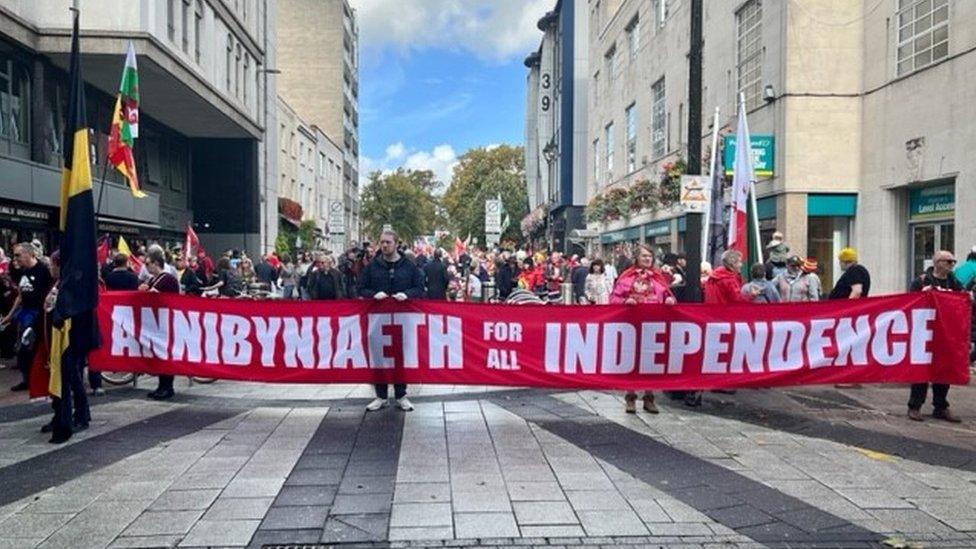
There will be three "viable" options that the commission will look at, one of which is independence
The way Wales is currently governed is "not sustainable", according to a new report.
The Independent Commission on the Constitutional Future of Wales said it would examine three "viable" options for the future, including independence.
The commission was set up last year as part of a deal between the Welsh Labour government and Plaid Cymru.
Welsh Conservatives criticised it as "a waste of time and resources".
The Welsh government said "our constitutional structures have a direct impact on the quality of services we all rely on".
Plaid Cymru has called the report "a landmark" for recognising that independence "is a credible and viable way forward".
Since it was set up, the commission has heard evidence from constitutional experts, political parties, charities and community groups.
It has now published an interim report which concludes the current system of devolution has "significant problems" and is not "viable".
It said the "pressure points" on the current system included "an imbalance of power" between the UK and Welsh governments, and the "fragility" of their relationship.
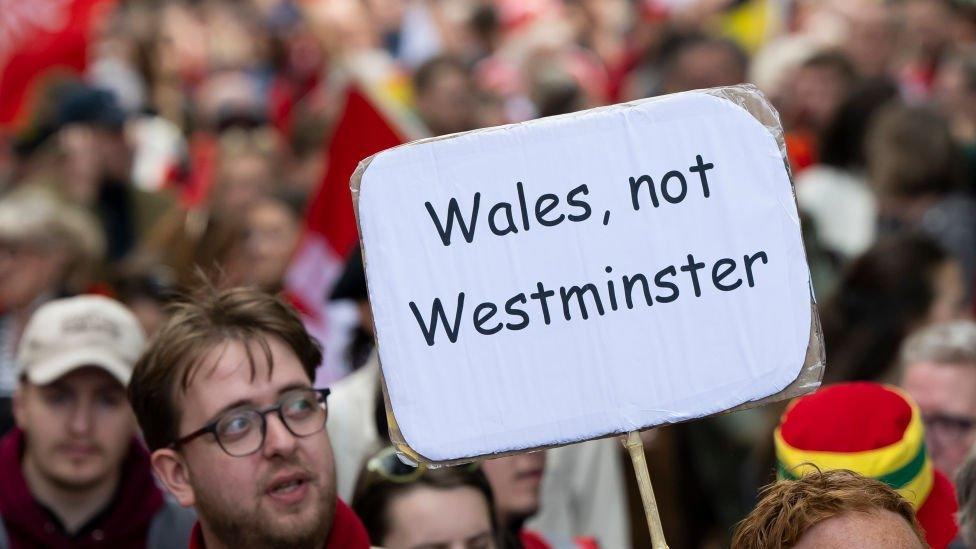
The Independent Commission on the Constitutional Future of Wales found the way Wales is currently governed is "not suitable"
Three options
The three options for change which the report identified will be examined in greater detail in the next phase of the commission's work.
Option one was "entrenching devolution", which would change the legal relationship between the Senedd and UK Parliament "to protect against unilateral changes" by the government in London. It could also involve arguing for more powers for Wales, including over the justice system, welfare, employment, broadcasting and railways
Option two would be a "federal structure", which would involve setting up regional governments in England, as well as changing the relationship between the UK government and Wales, Scotland and Northern Ireland, using a written constitution
Option three would be independence where Wales would become a sovereign country able to join international bodies, like the United Nations
The report said each option "raised fundamental questions" and the commission would "seek more detailed and comprehensive evidence so that we can test these options with the public".
When the final report comes next year, the commission is not expected to recommend any one of the three options.
The UK government's support would be required for any substantial change to the position of Wales in the UK.
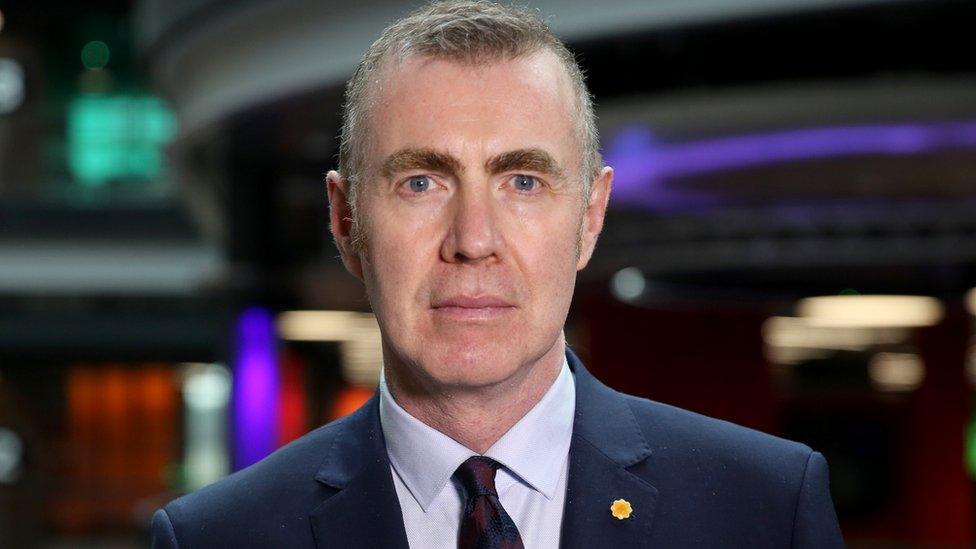
Plaid Cymru called the report "a landmark" for recognising that independence was a credible and viable way forward

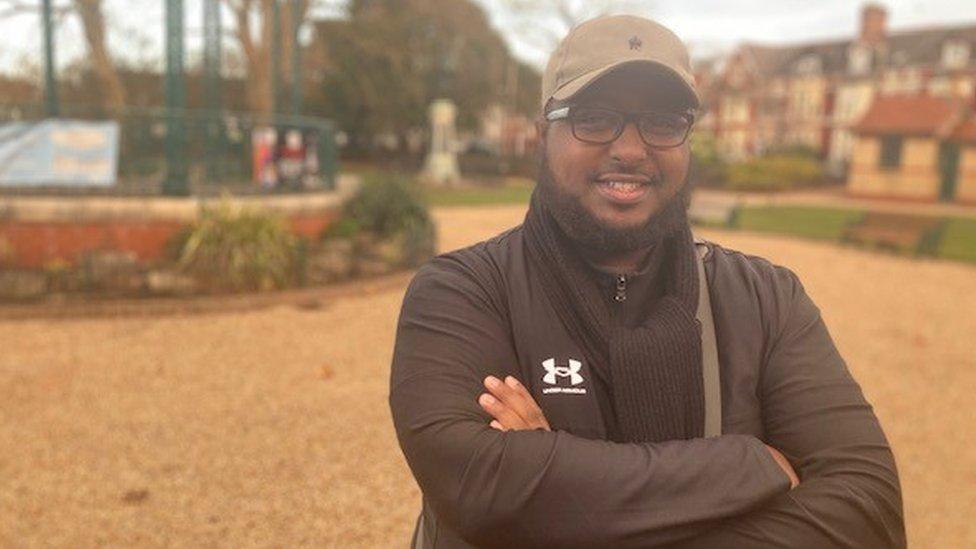
"Wales should run everything that represents has an impact on the country," said Mr Abdi
What do the residents of Grangetown in Cardiff think?
Ali Abdi, a community activist, said: "I think Wales should go it alone, Wales should have more power.
"If we're working on policing issues then we should control our policing budget, justice and laws.
"We need to be independent of the chaos in Westminster. I think we should have more representatives of our community in our places of power here too."
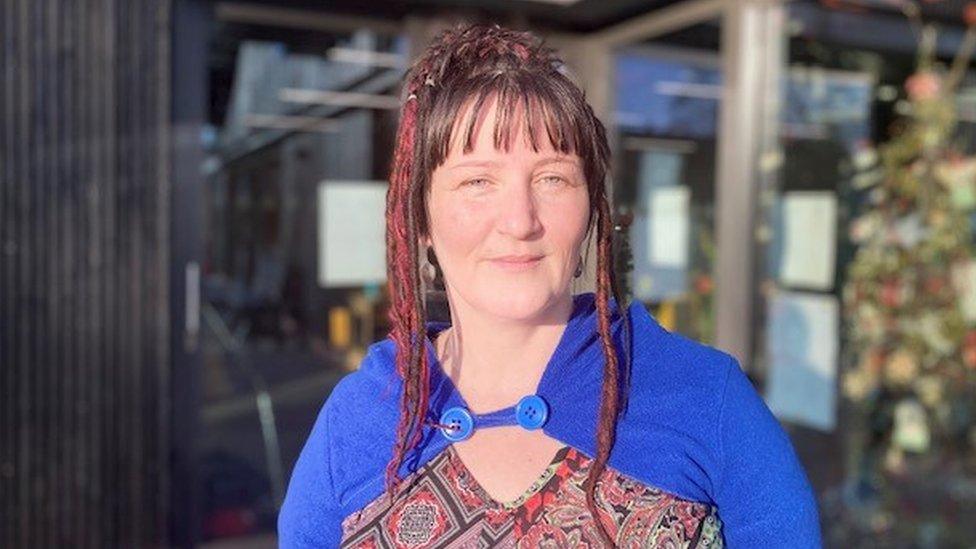
Ms James is chair of Home Education Wales
Ianna James said, as a home educator, she was disappointed with what has already been done with devolved powers in Wales.
"Home education is a 50-year-old culture of thousands of people in Wales who want to learn together as a family," she said.
"Seeing that they don't want to communicate with us to look into that further and understand it, does not give me faith that they would use further powers wisely."
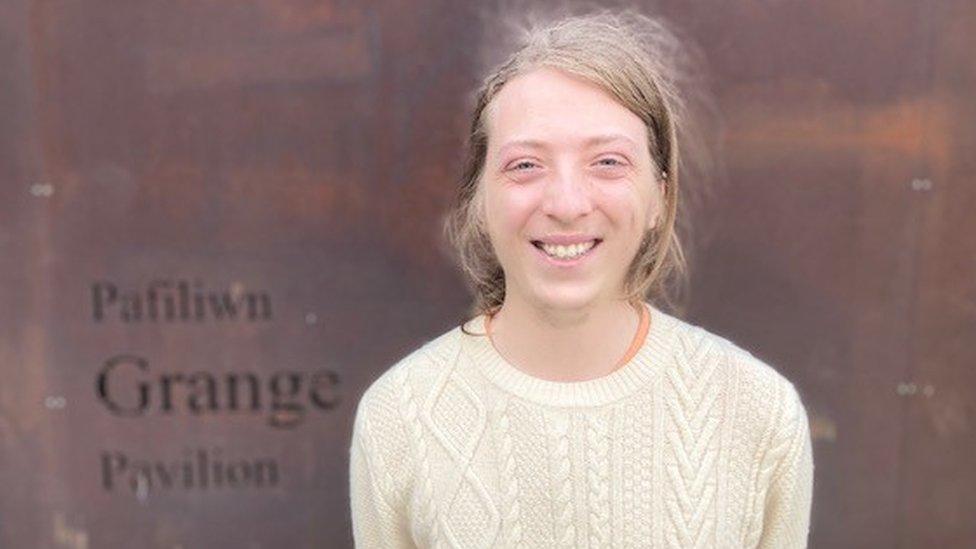
Dan Ware said that there is a "dissatisfaction with the status quo"
Another resident, Dan Ware, said: "Going independent is a largely important step to be taken in order to rectify some of the unequal levels of wealth that have been quite rampant throughout the UK, especially in the last 15-20 years.
"I think independence has a strong pull for lots of people."
Eda Stepanova works in the Hideout Café at Grange Pavilion.
She said: "My question is if we break away from England where do we get our support from?
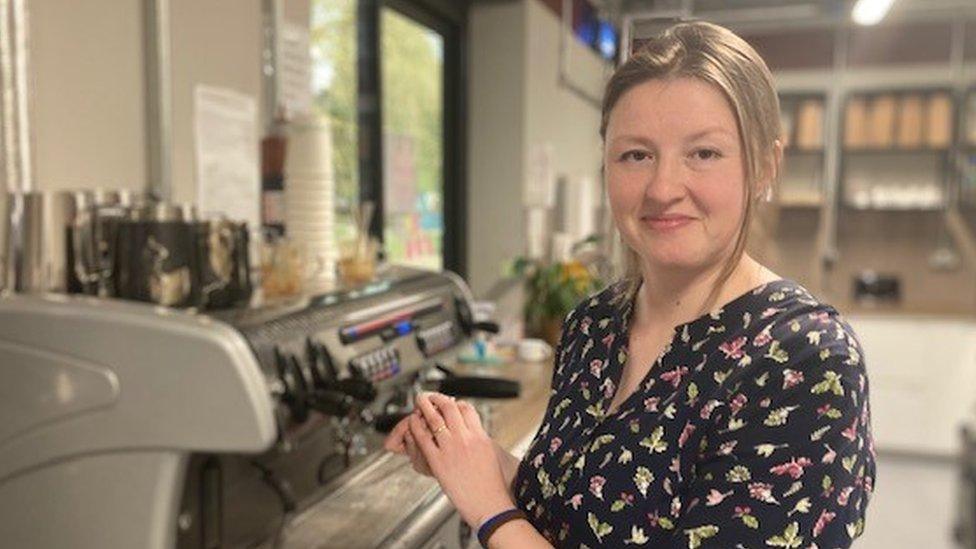
Eda Stepanova questioned where support would come from if Wales gained independence
"How do we become our own nation? I think probably together, staying together as a nation, that's how I see it."

The Welsh government welcomed the report, and said: "We are committed to ensuring Wales has a strong future, which works for all of us."
Plaid Cymru leader Adam Price said the significance of the report "cannot be overstated".
"Plaid Cymru believes that only independence can deliver the greener, and stronger economic future, and fairness that the communities of Wales urgently need and deserve," he said.
But Welsh Conservatives rejected any further powers being given to the Welsh government.
"The current devolution settlement gives the Labour government ample powers to improve the state of the economy, education and the health service," the party said.
"Their focus should be on using the sufficient levers they possess now to improve their record with Wales having the worst waiting times in the UK, the lowest GCSE results, and a 50/50 chance of an ambulance arriving in time."
'Door not closed' on criminal justice
The release of the report comes days after a UK Labour report called for the devolution of youth justice and probation, but stopped short of backing the full Welsh government take over of policing and criminal justice.
That is despite Labour having backed the ideas for years.
In the Senedd on Wednesday Wales' most senior legal adviser said the door was not "closed" under a UK Labour government.
Counsel General Mick Antoniw said: "I'm confident in the inevitable devolution of justice."
But he said the Independent Commission on the Constitutional Future of Wales "would be the place of Wales to decide what the future of Wales should be".
"It will be for this Senedd and the people of Wales to decide what that should be," he said.
He said the Brown report said it would expect a Labour government to engage "constructively with its recommendations".

WHO DO WE THINK WE ARE?: Huw Edwards explores the source of Wales' identity
WALES ON AIR: A unique concert reflecting life in Wales

- Published1 October 2022

- Published30 September 2022

- Published27 March 2022

- Published10 May 2022
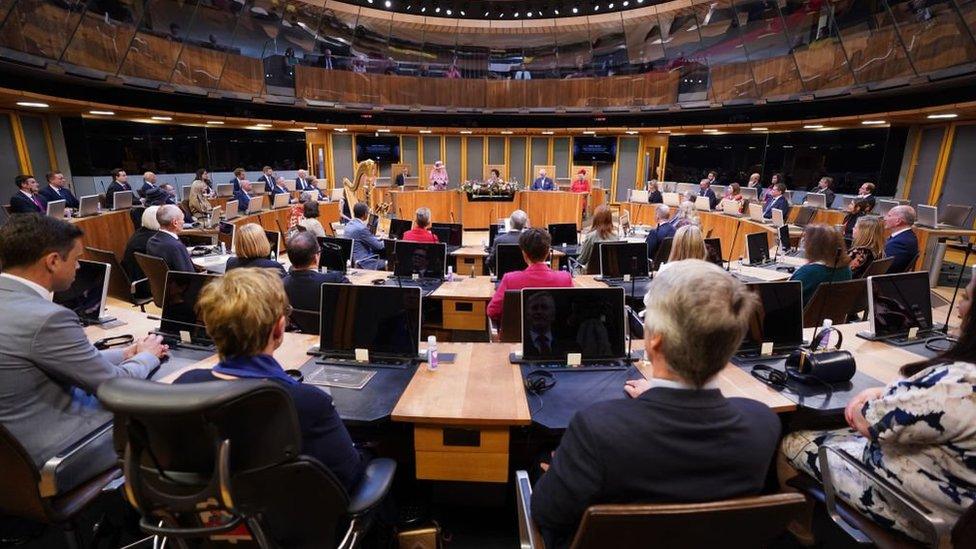
- Published19 October 2021

- Published12 September 2021

- Published17 January 2021
